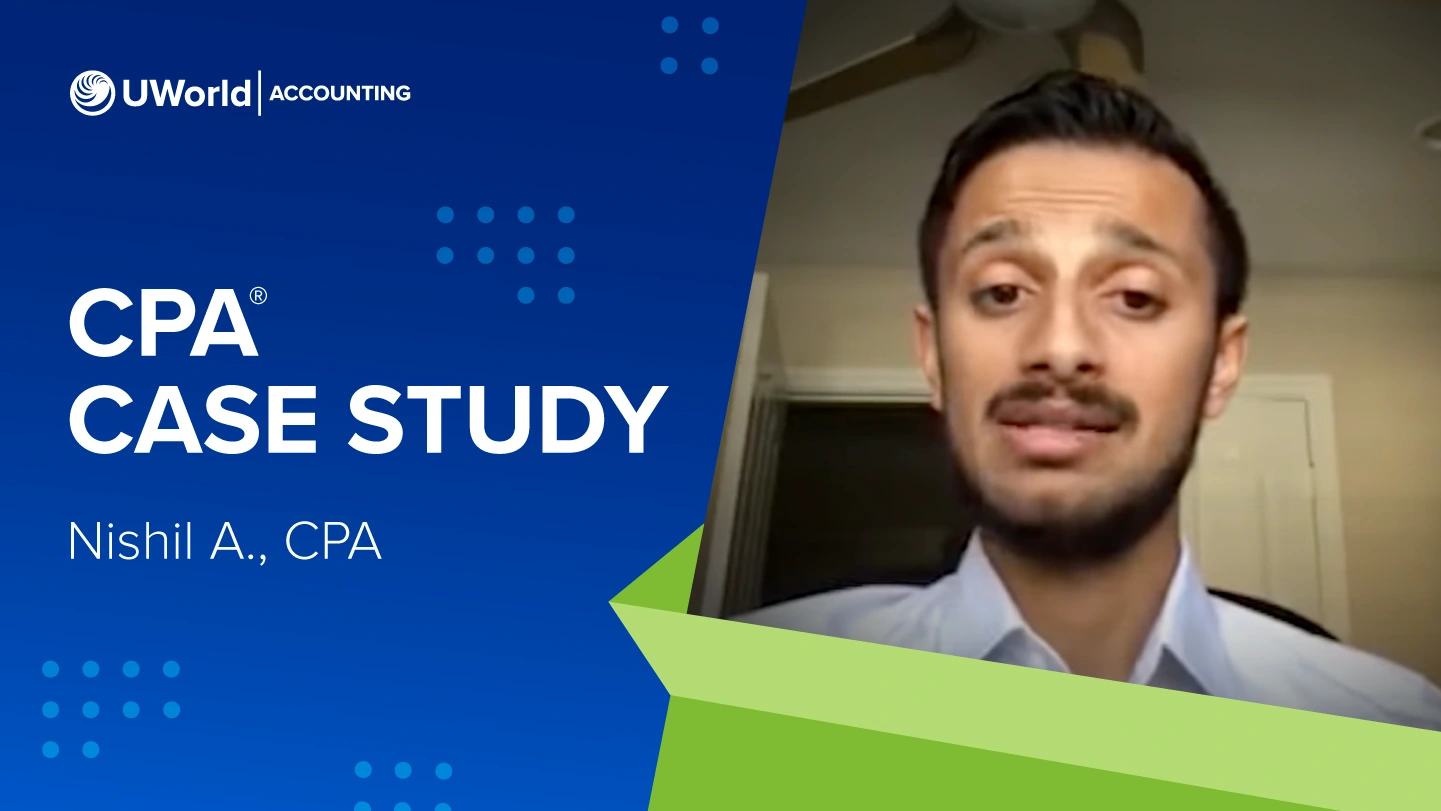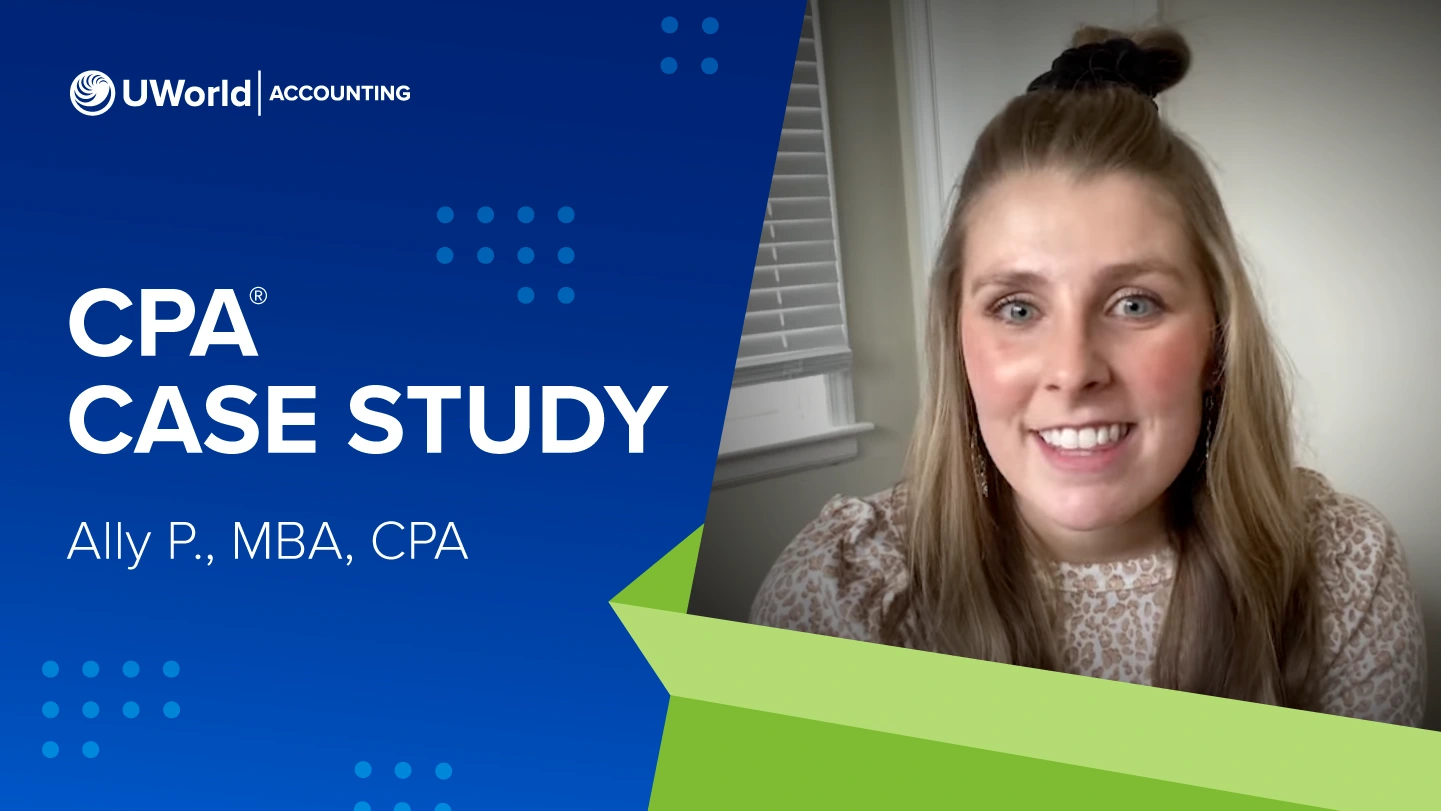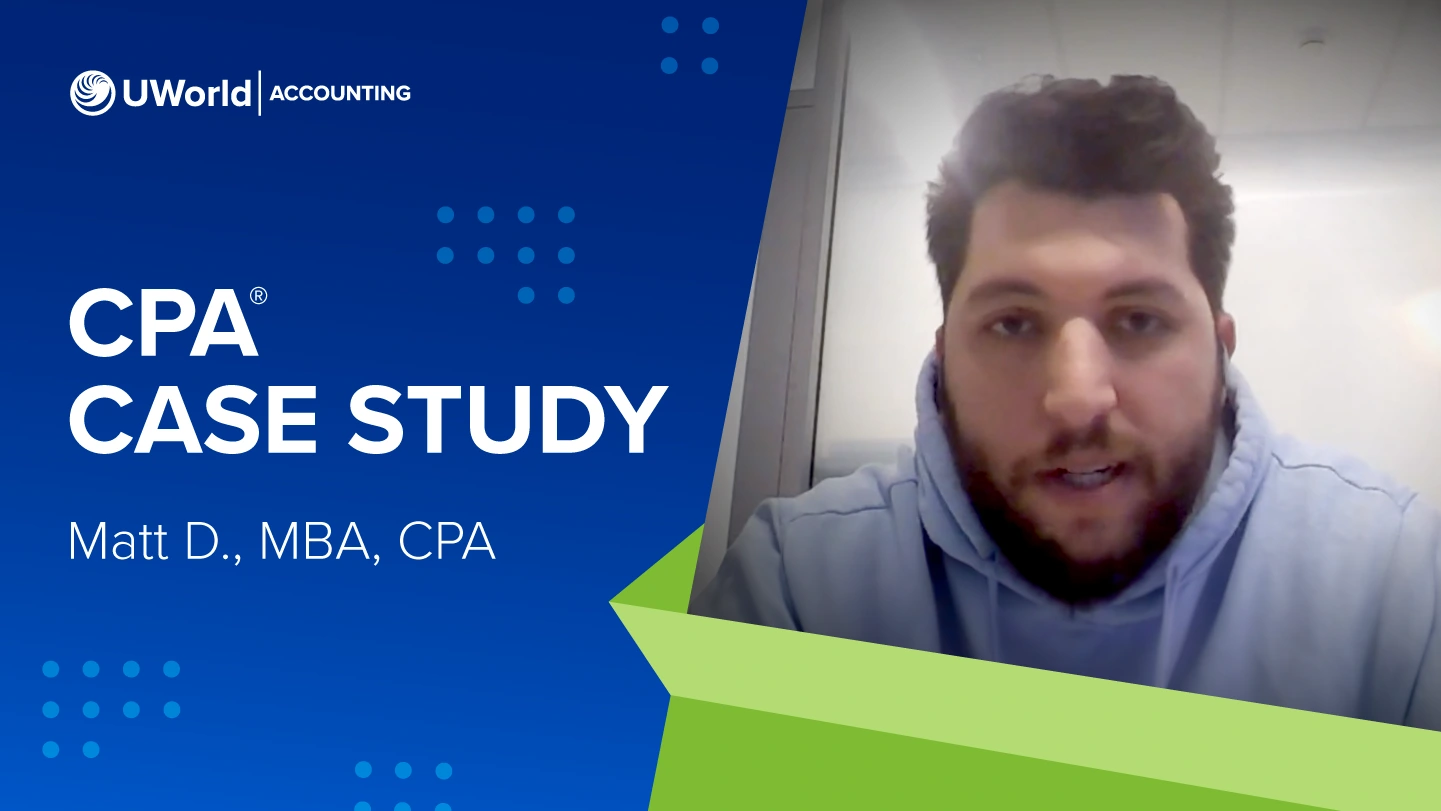UWorld Accounting Reviews and Testimonials
Success Stories From Students Who Passed the CPA, CMA, and CIA Exams
Hear what real UWorld Accounting students have to say about our CPA, CMA, and CIA Review Courses. Choose UWorld for expert guidance and exam review material.
Ethos

Nishil graduated with a B.B.A. in Accounting from California State University, Fullerton, and is now an Senior Revenue Accountant at Ethos. Nishil’s goal of becoming a CPA stems from his passion for analyzing and solving financial problems.
Nishil's firm offered a couple of review course options. Nishil chose UWorld because many of his colleagues recommended it. According to Nishil, “It's not just cut and dry lectures; it's not just plain multiple-choice questions (MCQs). It engages you more. It gives you different options on how to learn.”
Learn MorePlante Moran

Ally received her B.A. in Accounting & Finance from Loyola University Chicago, where she also obtained her M.B.A. in Accounting. She currently works at Plante Moran as an Assurance Senior.
After seeing a UWorld representative do a presentation about the CPA Exam on her college campus, Ally was immediately drawn to the program. The stars aligned when Ally found out that her firm offered UWorld as an option, which she gladly chose.
Learn MoreBerryDunn

Matt Dunn received his Bachelors of Accounting and MBA from Husson University before his current role as Audit Manager at BerryDunn — Assurance, Tax and Consulting in Kennebunk Maine.
After struggling with another review course and failing the CPA Exam 13 times, Matt found success with UWorld. In this inspiring story, Matt shares how UWorld's engaging lectures, MCQs, and SmartPath™ Predictive Technology helped him pass all 4 sections of the CPA Exam.
Learn MoreShare Your Experience
We’d love to hear all about it! Submit a testimonial and we may even share your story with the rest of the UWorld Accounting community.